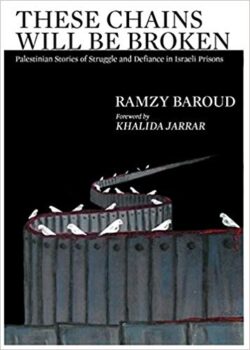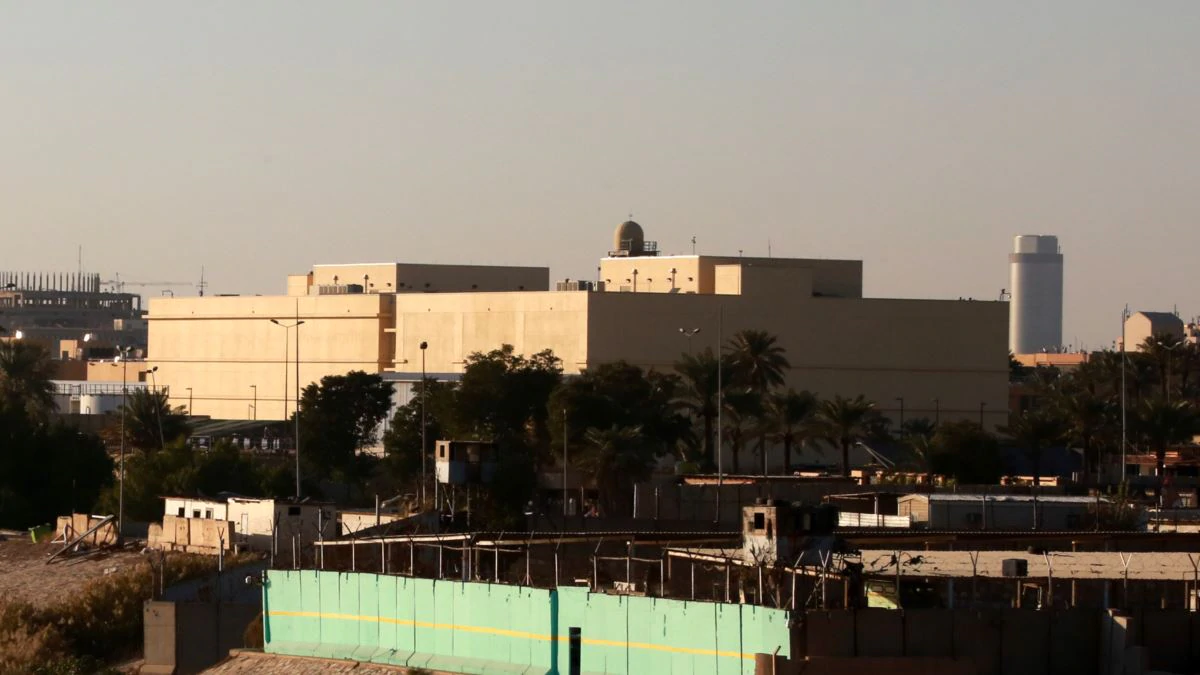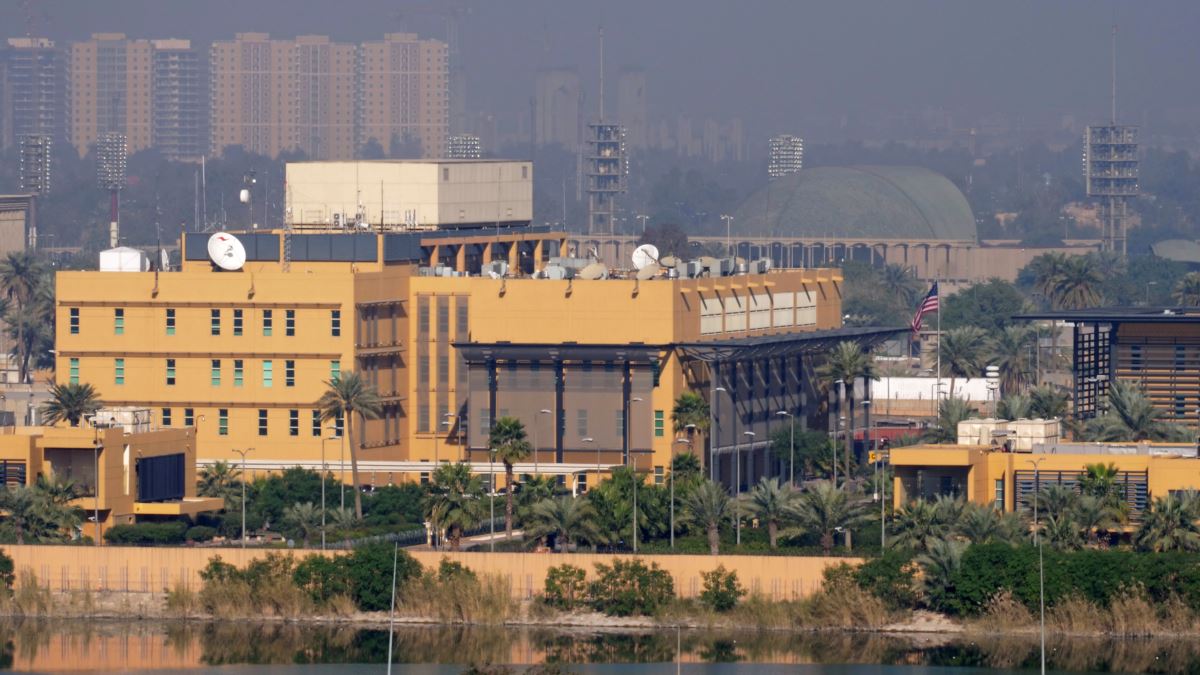While the world is consumed with the terrifying coronavirus pandemic, on March 19 the Trump administration will be marking the 17th anniversary of the U.S. invasion of Iraq by ramping up the conflict there. After an Iran-aligned militia allegedly struck a U.S. base near Baghdad on March 11, the U.S. military carried out retaliatory strikes against five of the militia’s weapons factories and announced it is sending two more aircraft carriers to the region, as well as new Patriot missile systems and hundreds more troops to operate them. This contradicts the January vote of the Iraqi Parliament that called for U.S. troops to leave the country. It also goes against the sentiment of most Americans, who think the Iraq war was not worth fighting, and against the campaign promise of Donald Trump to end the endless wars.
Seventeen years ago, the U.S. armed forces attacked and invaded Iraq with a force of over 460,000 troops from all its armed services, supported by 46,000 UK troops, 2,000 from Australia and a few hundred from Poland, Spain, Portugal and Denmark. The “shock and awe” aerial bombardment unleashed 29,200 bombs and missiles on Iraq in the first five weeks of the war.
The U.S. invasion was a crime of aggression under international law, and was actively opposed by people and countries all over the world, including 30 million people who took to the streets in 60 countries on February 15, 2003, to express their horror that this could really be happening at the dawn of the 21st century. American historian Arthur Schlesinger Jr., who was a speechwriter for President John F. Kennedy, compared the U.S. invasion of Iraq to Japan’s preemptive attack on Pearl Harbor in 1941 and wrote, “Today, it is we Americans who live in infamy.”
Seventeen years later, the consequences of the invasion have lived up to the fears of all who opposed it. Wars and hostilities rage across the region, and divisions over war and peace in the U.S. and Western countries challenge our highly selective view of ourselves as advanced, civilized societies. Here is a look at 12 of the most serious consequences of the U.S. war in Iraq.
1. Millions of Iraqis Killed and Wounded
Estimates on the number of people killed in the invasion and occupation of Iraq vary widely, but even the most conservative estimates based on fragmentary reporting of minimum confirmed deaths are in the hundreds of thousands. Serious scientific studies estimated that 655,000 Iraqis had died in the first three years of war, and about a million by September 2007. The violence of the U.S. escalation or “surge” continued into 2008, and sporadic conflict continued from 2009 until 2014. Then in its new campaign against Islamic State, the U.S. and its allies bombarded major cities in Iraq and Syria with more than 118,000 bombs and the heaviest artillery bombardments since the Vietnam War. They reduced much of Mosul and other Iraqi cities to rubble, and a preliminary Iraqi Kurdish intelligence report found that more than 40,000 civilians were killed in Mosul alone. There are no comprehensive mortality studies for this latest deadly phase of the war. In addition to all the lives lost, even more people have been wounded. The Iraqi government’s Central Statistical Organization says that 2 million Iraqis have been left disabled.
2. Millions More Iraqis Displaced
By 2007, the UN High Commissioner for Refugees (UNHCR) reported that nearly 2 million Iraqis had fled the violence and chaos of occupied Iraq, mostly to Jordan and Syria, while another 1.7 million were displaced within the country. The U.S. war on the Islamic State relied even more on bombing and artillery bombardment, destroying even more homes and displacing an astounding 6 million Iraqis from 2014 to 2017. According to the UNHCR, 4.35 million people have returned to their homes as the war on IS has wound down, but many face “destroyed properties, damaged or non-existent infrastructure and the lack of livelihood opportunities and financial resources, which at times [has] led to secondary displacement.” Iraq’s internally displaced children represent “a generation traumatized by violence, deprived of education and opportunities,” according to UN Special Rapporteur Cecilia Jimenez-Damary.
3. Thousands of American, British and Other Foreign Troops Killed and Wounded
While the U.S. military downplays Iraqi casualties, it precisely tracks and publishes its own. As of February 2020, 4,576 U.S. troops and 181 British troops have been killed in Iraq, as well as 142 other foreign occupation troops. Over 93 percent of the foreign occupation troops killed in Iraq have been Americans. In Afghanistan, where the U.S. has had more support from NATO and other allies, only 68 percent of occupation troops killed have been Americans. The greater share of U.S. casualties in Iraq is one of the prices Americans have paid for the unilateral, illegal nature of the U.S. invasion. By the time U.S. forces temporarily withdrew from Iraq in 2011, 32,200 U.S. troops had been wounded. As the U.S. tried to outsource and privatize its occupation, at least 917 civilian contractors and mercenaries were also killed and 10,569 wounded in Iraq, but not all of them were U.S. nationals.
4. Even More Veterans Have Committed Suicide
More than 20 U.S. veterans kill themselves every day—that’s more deaths each year than the total U.S. military deaths in Iraq. Those with the highest rates of suicide are young veterans with combat exposure, who commit suicide at rates “4-10 times higher than their civilian peers.” Why? As Matthew Hoh of Veterans for Peace explains, many veterans “struggle to reintegrate into society,” are ashamed to ask for help, are burdened by what they saw and did in the military, are trained in shooting and own guns, and carry mental and physical wounds that make their lives difficult.
5. Trillions of Dollars Wasted
On March 16, 2003, just days before the U.S. invasion, Vice President Dick Cheney projected that the war would cost the U.S. about $100 billion and that the U.S. involvement would last for two years. Seventeen years on, the costs are still mounting. The Congressional Budget Office (CBO) estimated a cost of $2.4 trillion for the wars in Iraq and Afghanistan in 2007. Nobel Prize-winning economist Joseph Stiglitz and Harvard University’s Linda Bilmes estimated the cost of the Iraq war at more than $3 trillion, “based on conservative assumptions,” in 2008. The UK government spent at least 9 billion pounds in direct costs through 2010. What the U.S. did not spend money on, contrary to what many Americans believe, was to rebuild Iraq, the country our war destroyed.
6. Dysfunctional and Corrupt Iraqi Government
Most of the men (no women!) running Iraq today are still former exiles who flew into Baghdad in 2003 on the heels of the U.S. and British invasion forces. Iraq is finally once again exporting 3.8 million barrels of oil per day and earning $80 billion a year in oil exports, but little of this money trickles down to rebuild destroyed and damaged homes or provide jobs, health care or education for Iraqis, only 36 percent of whom even have jobs. Iraq’s young people have taken to the streets to demand an end to the corrupt post-2003 Iraqi political regime and U.S. and Iranian influence over Iraqi politics. More than 600 protesters were killed by government forces, but the protests forced Prime Minister Adel Abdul Mahdi to resign. Another former Western-based exile, Mohammed Tawfiq Allawi, the cousin of former U.S.-appointed interim prime minister Ayad Allawi, was chosen to replace him, but he resigned within weeks after the National Assembly failed to approve his cabinet choices. The popular protest movement celebrated Allawi’s resignation, and Abdul Mahdi agreed to remain as prime minister, but only as a “caretaker” to carry out essential functions until new elections can be held. He has called for new elections in December. Until then, Iraq remains in political limbo, still occupied by about 5,000 U.S. troops.
7. Illegal War on Iraq Has Undermined the Rule of International Law
When the U.S. invaded Iraq without the approval of the UN Security Council, the first victim was the United Nations Charter, the foundation of peace and international law since World War II, which prohibits the threat or use of force by any country against another. International law only permits military action as a necessary and proportionate defense against an attack or imminent threat. The illegal 2002 Bush doctrine of preemption was universally rejected because it went beyond this narrow principle and claimed an exceptional U.S. right to use unilateral military force “to preempt emerging threats,” undermining the authority of the UN Security Council to decide whether a specific threat requires a military response or not. Kofi Annan, the UN secretary-general at the time, said the invasion was illegal and would lead to a breakdown in international order, and that is exactly what has happened. When the U.S. trampled the UN Charter, others were bound to follow. Today we are watching Turkey and Israel follow in the U.S.’s footsteps, attacking and invading Syria at will as if it were not even a sovereign country, using the people of Syria as pawns in their political games.
8. Iraq War Lies Corrupted U.S. Democracy
The second victim of the invasion was American democracy. Congress voted for war based on a so-called “summary” of a National Intelligence Estimate (NIE) that was nothing of the kind. The Washington Post reported that only six out of 100 senators and a few House members read the actual NIE. The 25-page “summary” that other members of Congress based their votes on was a document produced months earlier “to make the public case for war,” as one of its authors, the CIA’s Paul Pillar, later confessed to PBS Frontline. It contained astounding claims that were nowhere to be found in the real NIE, such as that the CIA knew of 550 sites where Iraq was storing chemical and biological weapons. Secretary of State Colin Powell repeated many of these lies in his shameful performance at the UN Security Council in February 2003, while Bush and Cheney used them in major speeches, including Bush’s 2003 State of the Union address. How is democracy—the rule of the people—even possible if the people we elect to represent us in Congress can be manipulated into voting for a catastrophic war by such a web of lies?
9. Impunity for Systematic War Crimes
Another victim of the invasion of Iraq was the presumption that U.S. presidents and policy are subject to the rule of law. Seventeen years later, most Americans assume that the president can conduct war and assassinate foreign leaders and terrorism suspects as he pleases, with no accountability whatsoever—like a dictator. When President Obama said he wanted to look forward instead of backward, and held no one from the Bush administration accountable for their crimes, it was as if they ceased to be crimes and became normalized as U.S. policy. That includes crimes of aggression against other countries; the mass killing of civilians in U.S. airstrikes and drone strikes; and the unrestricted surveillance of every American’s phone calls, emails, browsing history and opinions. But these are crimes and violations of the U.S. Constitution, and refusing to hold accountable those who committed these crimes has made it easier for them to be repeated.
10. Destruction of the Environment
During the first Gulf War, the U.S. dropped 340 tons of warheads and explosives made with depleted uranium, which poisoned the soil and water and led to skyrocketing levels of cancer. In the following decades of “ecocide,” Iraq has been plagued by the burning of dozens of oil wells; the pollution of water sources from the dumping of oil, sewage and chemicals; millions of tons of rubble from destroyed cities and towns; and the burning of huge volumes of military waste in open air “burn pits” during the war. The pollution caused by war is linked to the high levels of congenital birth defects, premature births, miscarriages and cancer (including leukemia) in Iraq. The pollution has also affected U.S. soldiers. “More than 85,000 U.S. Iraq war veterans… have been diagnosed with respiratory and breathing problems, cancers, neurological diseases, depression and emphysema since returning from Iraq,” as the Guardian reports. And parts of Iraq may never recover from the environmental devastation.
11. The U.S.’s Sectarian “Divide and Rule” Policy in Iraq Spawned Havoc Across the Region
In secular 20th-century Iraq, the Sunni minority was more powerful than the Shia majority, but for the most part, the different ethnic groups lived side-by-side in mixed neighborhoods and even intermarried. Friends with mixed Shia/Sunni parents tell us that before the U.S. invasion, they didn’t even know which parent was Shia and which was Sunni. After the invasion, the U.S. empowered a new Shiite ruling class led by former exiles allied with the U.S. and Iran, as well as the Kurds in their semi-autonomous region in the north. The upending of the balance of power and deliberate U.S. “divide and rule” policies led to waves of horrific sectarian violence, including the ethnic cleansing of communities by Interior Ministry death squads under U.S. command. The sectarian divisions the U.S. unleashed in Iraq led to the resurgence of Al Qaeda and the emergence of ISIS, which have wreaked havoc throughout the entire region.
12. The New Cold War Between the U.S. and the Emerging Multilateral World
When President Bush declared his “doctrine of preemption” in 2002, Senator Edward Kennedy called it “a call for 21st century American imperialism that no other nation can or should accept.” But the world has so far failed to either persuade the U.S. to change course or to unite in diplomatic opposition to its militarism and imperialism. France and Germany bravely stood with Russia and most of the Global South to oppose the invasion of Iraq in the UN Security Council in 2003. But Western governments embraced Obama’s superficial charm offensive as cover for reinforcing their traditional ties with the U.S. China was busy expanding its peaceful economic development and its role as the economic hub of Asia, while Russia was still rebuilding its economy from the neoliberal chaos and poverty of the 1990s. Neither was ready to actively challenge U.S. aggression until the U.S., NATO and their Arab monarchist allies launched proxy wars against Libya and Syria in 2011. After the fall of Libya, Russia appears to have decided it must either stand up to U.S. regime change operations or eventually fall victim itself.
The economic tides have shifted, a multipolar world is emerging, and the world is hoping against hope that the American people and new American leaders will act to rein in this 21st-century American imperialism before it leads to an even more catastrophic U.S. war with Iran, Russia or China. As Americans, we must hope that the world’s faith in the possibility that we can democratically bring sanity and peace to U.S. policy is not misplaced. A good place to start would be to join the call by the Iraqi Parliament for U.S. troops to leave Iraq.
Medea Benjamin, co-founder of CODEPINK for Peace, is the author of several books, including Inside Iran: The Real History and Politics of the Islamic Republic of Iran and Kingdom of the Unjust: Behind the U.S.-Saudi Connection.
Nicolas J. S. Davies is an independent journalist, a researcher for CODEPINK, and the author of Blood on Our Hands: The American Invasion and Destruction of Iraq.
This article was produced by Local Peace Economy, a project of the Independent Media Institute.

This post was originally published on Truthdig RSS – Truthdig: Expert Reporting, Current News, Provocative Columnists.






 .
.